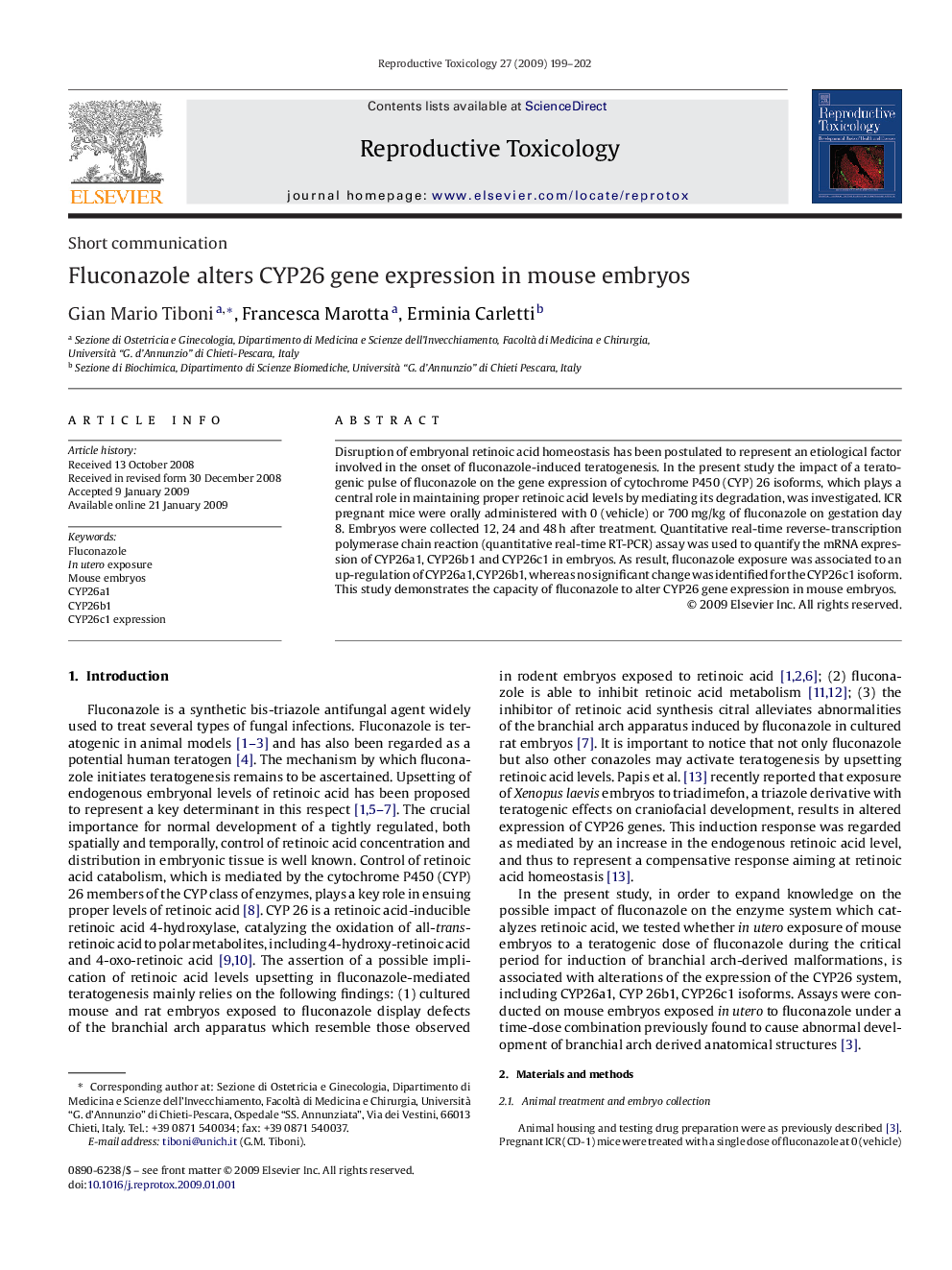| Article ID | Journal | Published Year | Pages | File Type |
|---|---|---|---|---|
| 2595056 | Reproductive Toxicology | 2009 | 4 Pages |
Abstract
Disruption of embryonal retinoic acid homeostasis has been postulated to represent an etiological factor involved in the onset of fluconazole-induced teratogenesis. In the present study the impact of a teratogenic pulse of fluconazole on the gene expression of cytochrome P450 (CYP) 26 isoforms, which plays a central role in maintaining proper retinoic acid levels by mediating its degradation, was investigated. ICR pregnant mice were orally administered with 0 (vehicle) or 700Â mg/kg of fluconazole on gestation day 8. Embryos were collected 12, 24 and 48Â h after treatment. Quantitative real-time reverse-transcription polymerase chain reaction (quantitative real-time RT-PCR) assay was used to quantify the mRNA expression of CYP26a1, CYP26b1 and CYP26c1 in embryos. As result, fluconazole exposure was associated to an up-regulation of CYP26a1, CYP26b1, whereas no significant change was identified for the CYP26c1 isoform. This study demonstrates the capacity of fluconazole to alter CYP26 gene expression in mouse embryos.
Related Topics
Life Sciences
Environmental Science
Health, Toxicology and Mutagenesis
Authors
Gian Mario Tiboni, Francesca Marotta, Erminia Carletti,
